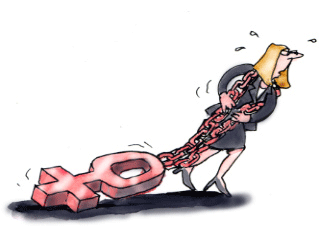Negoitation of a contract ... Inference about Dorothy's commercial nous ... Rules of Engagement ... Clause 76.5(e)(iv)(D) ... Dorothy Says  Today, at their behest, I met with Mike and Simmo to discuss their progress with the negotiation of a contract I had commented on a fortnight ago.
Today, at their behest, I met with Mike and Simmo to discuss their progress with the negotiation of a contract I had commented on a fortnight ago.
Mike and Simmo are part of a large client team working on an enormous project.
Mike is a spherical, forty something "big picture man" who prides himself on "doing the deal" in "double quick time" with what he calls "commercial efficacy".
Simmo is a sub-thirty AFL playing lawyery1 consultant, a "good bloke", who aspires to be a taller, but, on current indications, less hirsute version of Mike. He has, in relation to this contract, a "sense of ownership".
Swathes of the contract made little sense and I would usually have recommended radical surgery, but as Mike and Simmo had pressed upon me that they had progressed the negotiations quite a way I contained myself to a short list, which could be easily negotiated - in about 35 minutes if there was a rational person on the other side - and would save the client a lot of grief and, not inconceivably, $1.5 billion.
Mike opened the meeting by asking if George was coming. (I have been working on this deal with George, my colleague in the trenches.)
"As far as I know," I said cheerily, still at the paper arranging, pen searching stage of the meeting, "although he was on a plane this morning so he might be a little late".
"It's just that we need someone on this with a bit of commercial nous," said Mike.
There was a pause as the ambient temperature plummeted about twelve degrees.
I am a commercial lawyer: commercial nous is what I do. If he had said to me, "you are a big fat ugly tart", it would have been less offensive (and just as true - I am not big, fat, ugly or a tart).
In these circumstances, one must apply the Rules of Engagement.
Rule 1: MAINTAIN DIGNITY: remain calm, do not shout, and do not respond with offensive remarks.
I calmly looked Mike in the eye for quite a long time, one eyebrow faintly raised, smiling slightly. The smile was to stop my lips wobbling, which often occurs in moments of anger or upset.
Mike locked eyes, but I noted with some satisfaction that he was unable to raise his eyebrow.
Rule 2: SEEK PARTICULARS, while continuing to apply rule 1.
"Well," I said, "what would be best here? Shall we go through my comments one by one?"
Simmo said: "What we need from you today is your sign off. You just need to understand that X [the other party] would never agree to your changes."
Two key pieces of information were imparted in that statement.
The first was that the only reason they want my advice is because a person higher up the client chain wants my written assurance that their $1.5 billion is safe, so that they can sue me if it all turns to shit.
The second was that Simmo, despite having had the comments for two weeks, had not raised them with the other party, so would not actually know whether they will agree to them or not.
Rule 3 is that when, as invariably occurs, persons casting aspersions try to shirk giving particulars, insist. While applying Rule 1.
"OK then," I said, "let's go through the comments shall we?"
Mike said, in an exasperated, eye rolly tone, "Alright, if that is what it will take".
It quickly became apparent that Mike had not read the comments or, for that matter, the agreement.
There was a short halt while I secured copies of those documents for him.
During the hiatus, applying subrule 1(a) [if necessary to alleviate a build up of frost, talk about sport], I made some jovial observations about the state of cricket on the subcontinent.
After we agreed that comments 1 and 2 were unlikely to cause the other party any disquiet, we got to comment 3.
Simmo, with as little a bang on the table as a person who is six-foot-four-and-a-half can manage, put the proposition that all was solved by the seventh dot point in clause 76.5(e)(iv)(D), which he had drafted to address just that issue.
Mike frowned as he concentrated on reading clause 76.5(e)(iv)(D).
This took some time because clause 76.5(e)(iv)(D) was unintelligible: grammatically, legally, factually and in every other sense.
"I see what you are saying," he said to me at last, "but don't we just need to delete this clause and insert ['but only if the cat gets sick'2]?"
I tried not to look triumphal as I leaned across the table and pointed to my comments that said, "this could most easily be dealt with by replacing clause 76.5(e)(iv)(D) with the words ['but only if the cat gets sick']".
The meeting ended shortly thereafter, with a satisfactory outcome for everything except my blood pressure, which I resolved in the usual way by going home to share a bottle and a half of red with the kind and patient man I had the good sense, some years ago, to marry.
1 Meaning an LLB from the University of East Bumcrack (an institution discovered by Annabel Crabb).
2 Of course, these werebn't the actual words ... but you get the general idea.